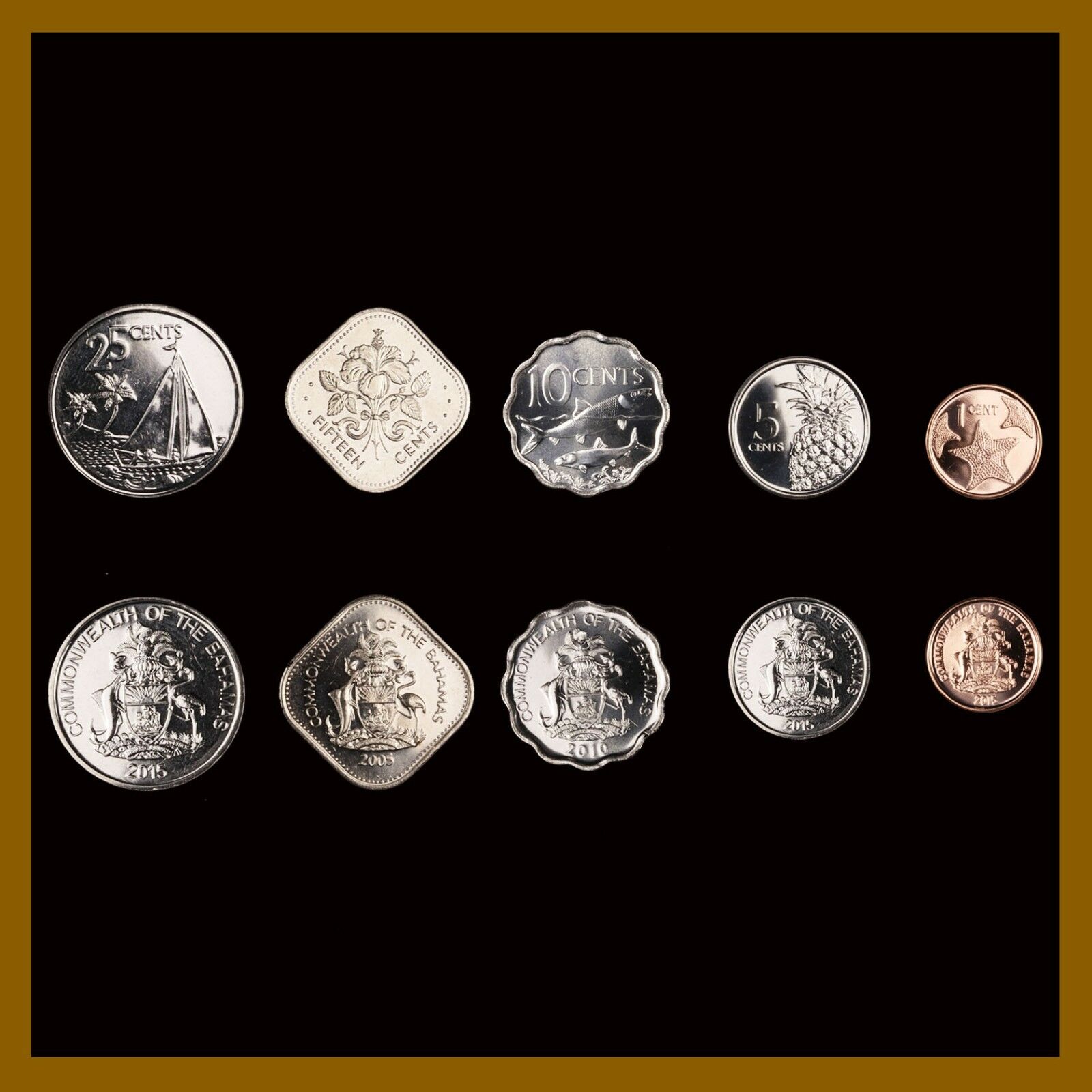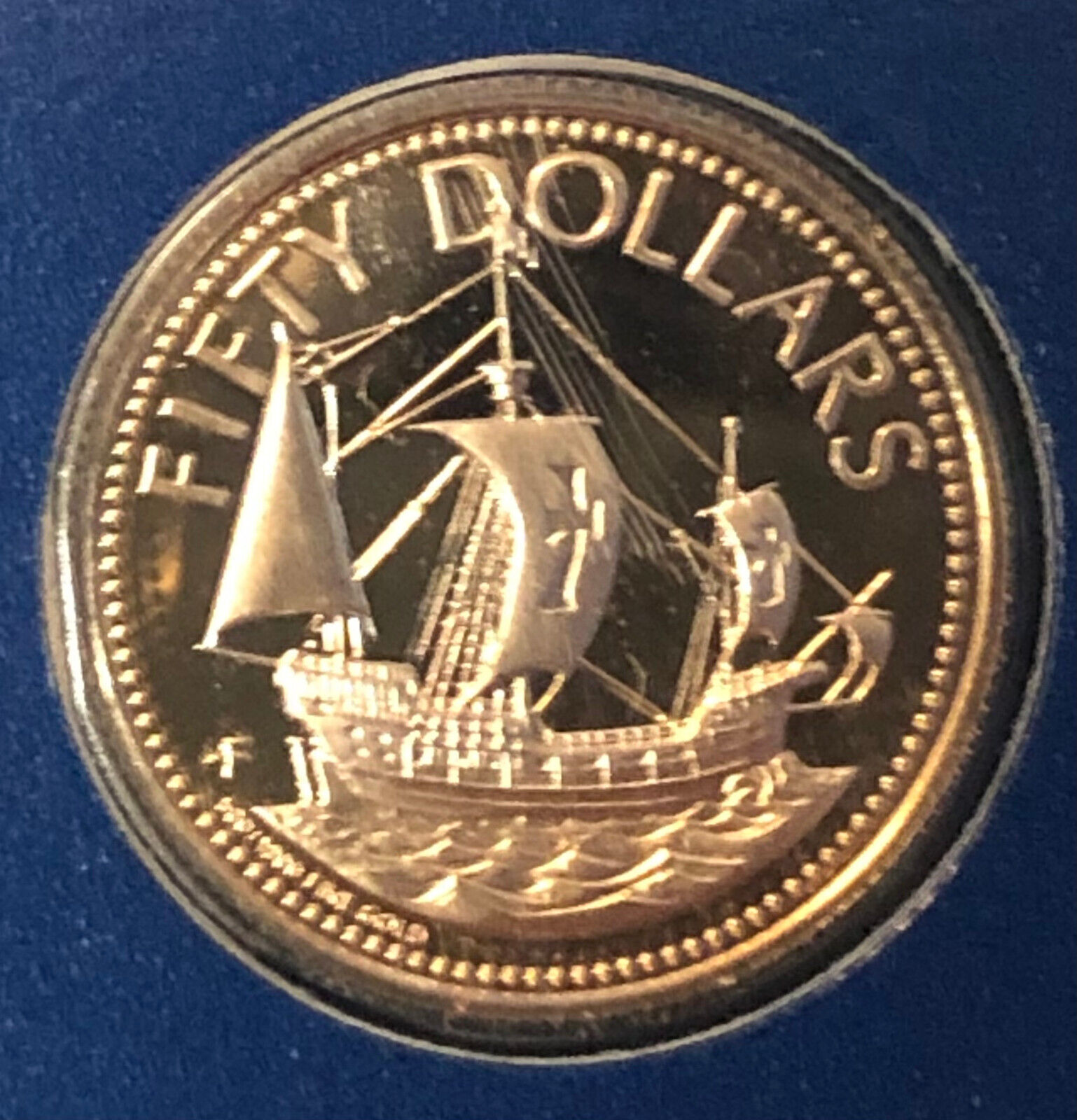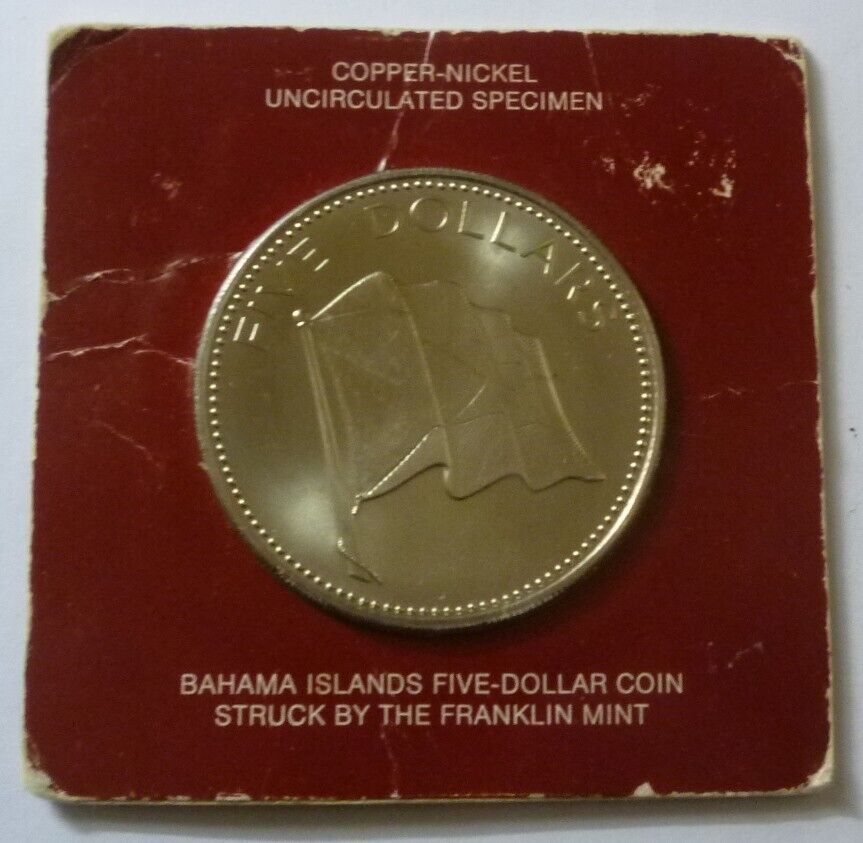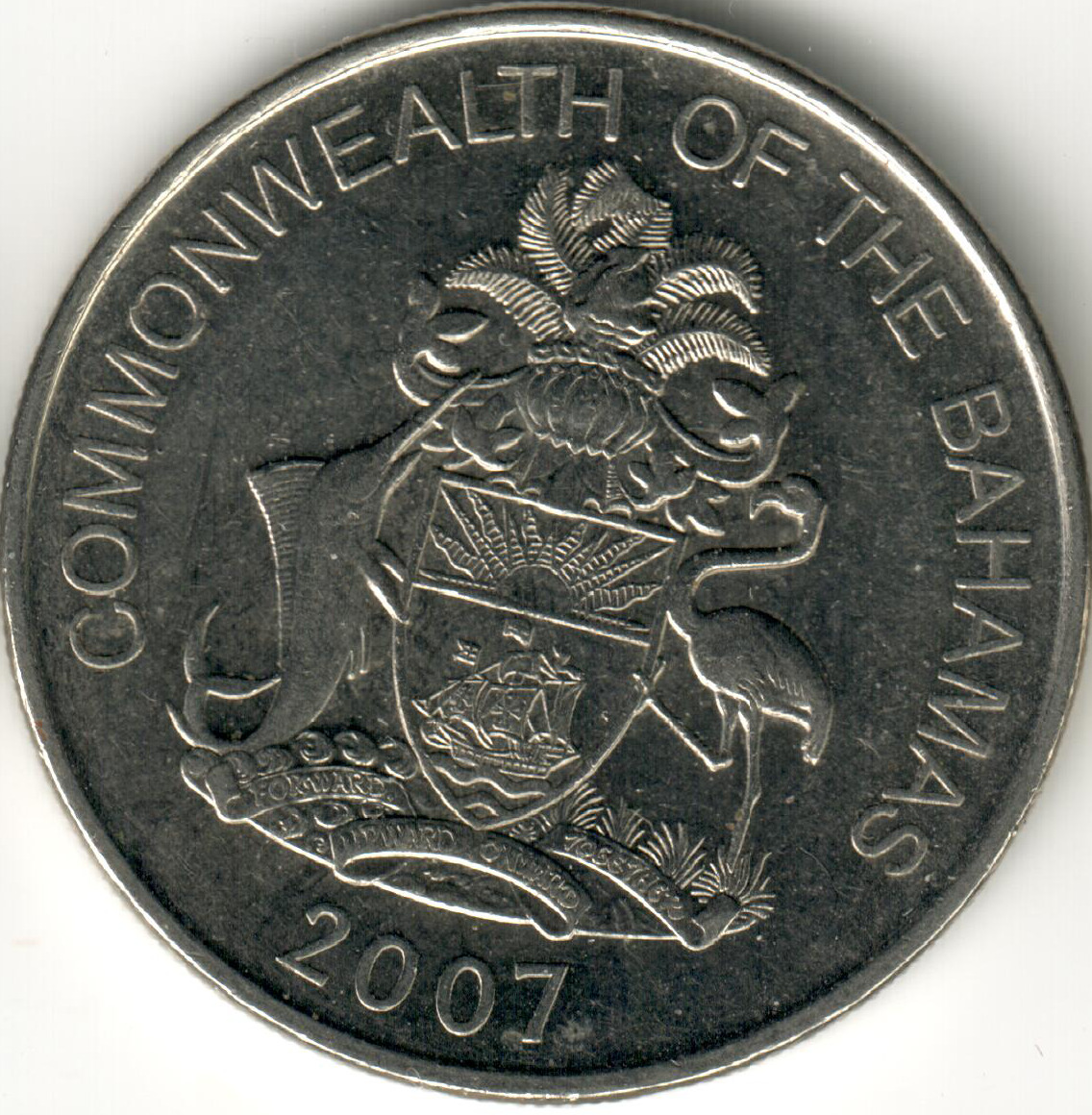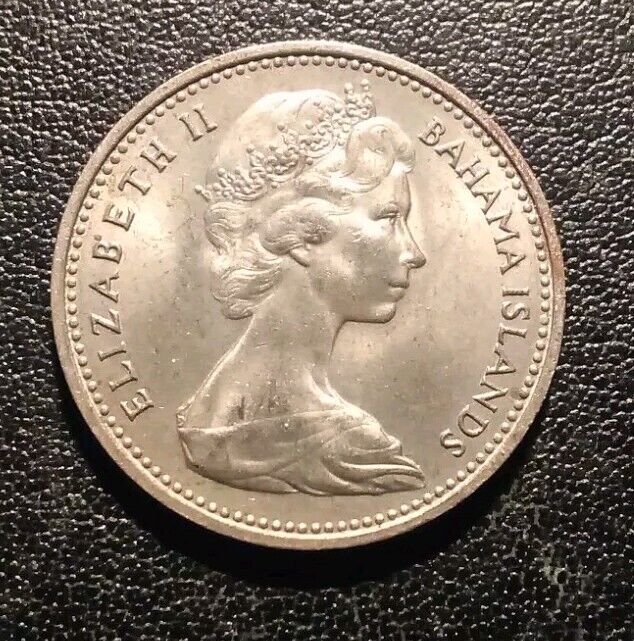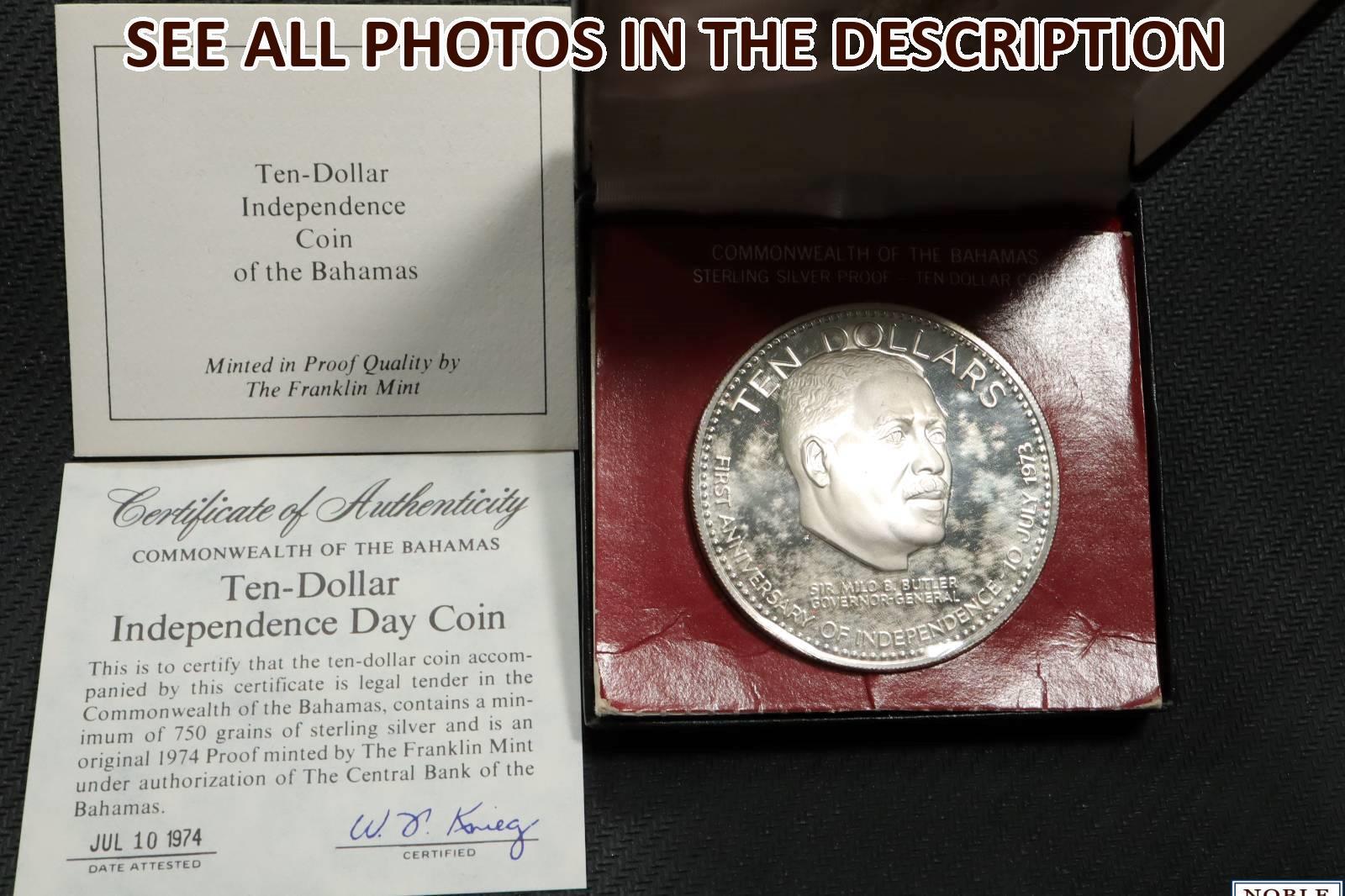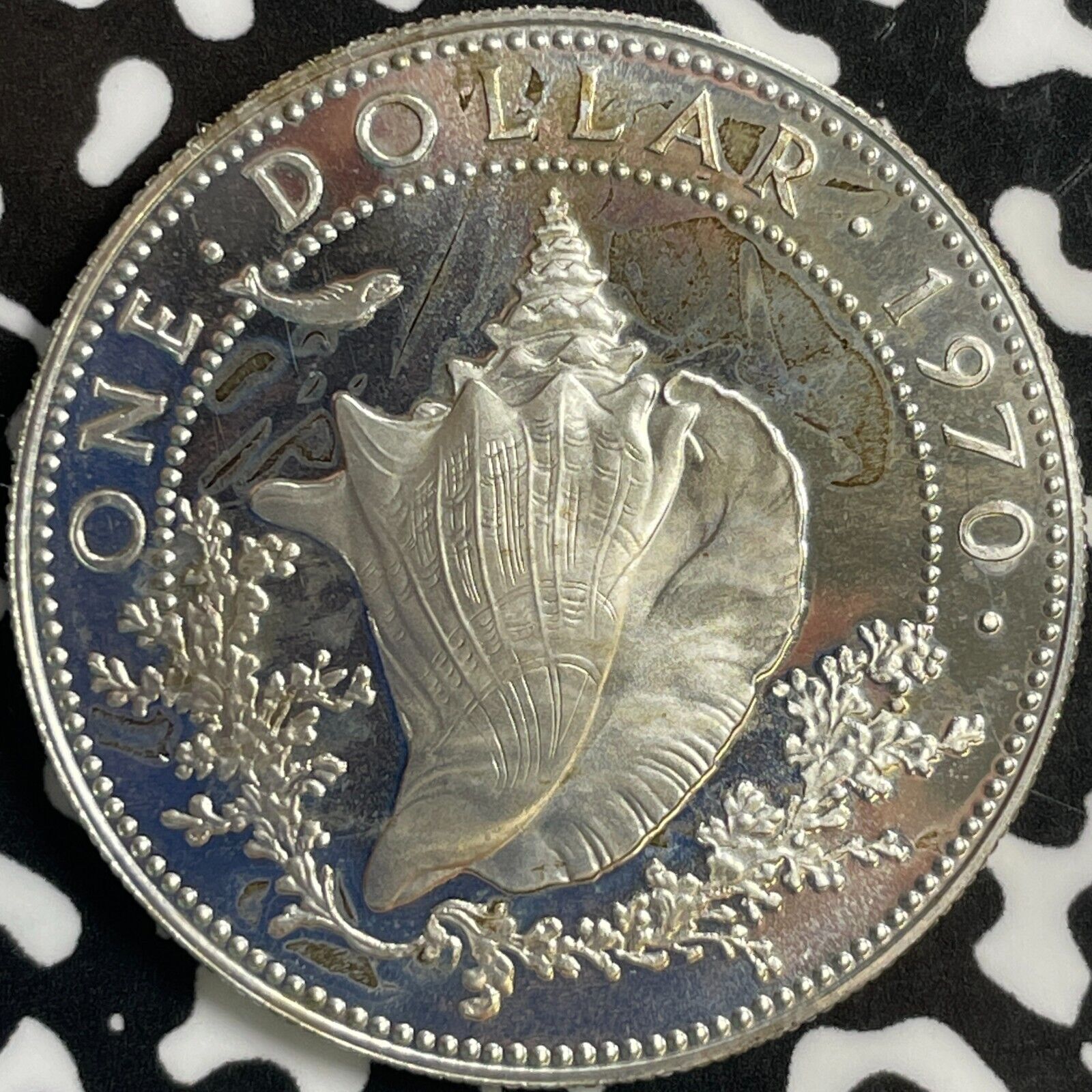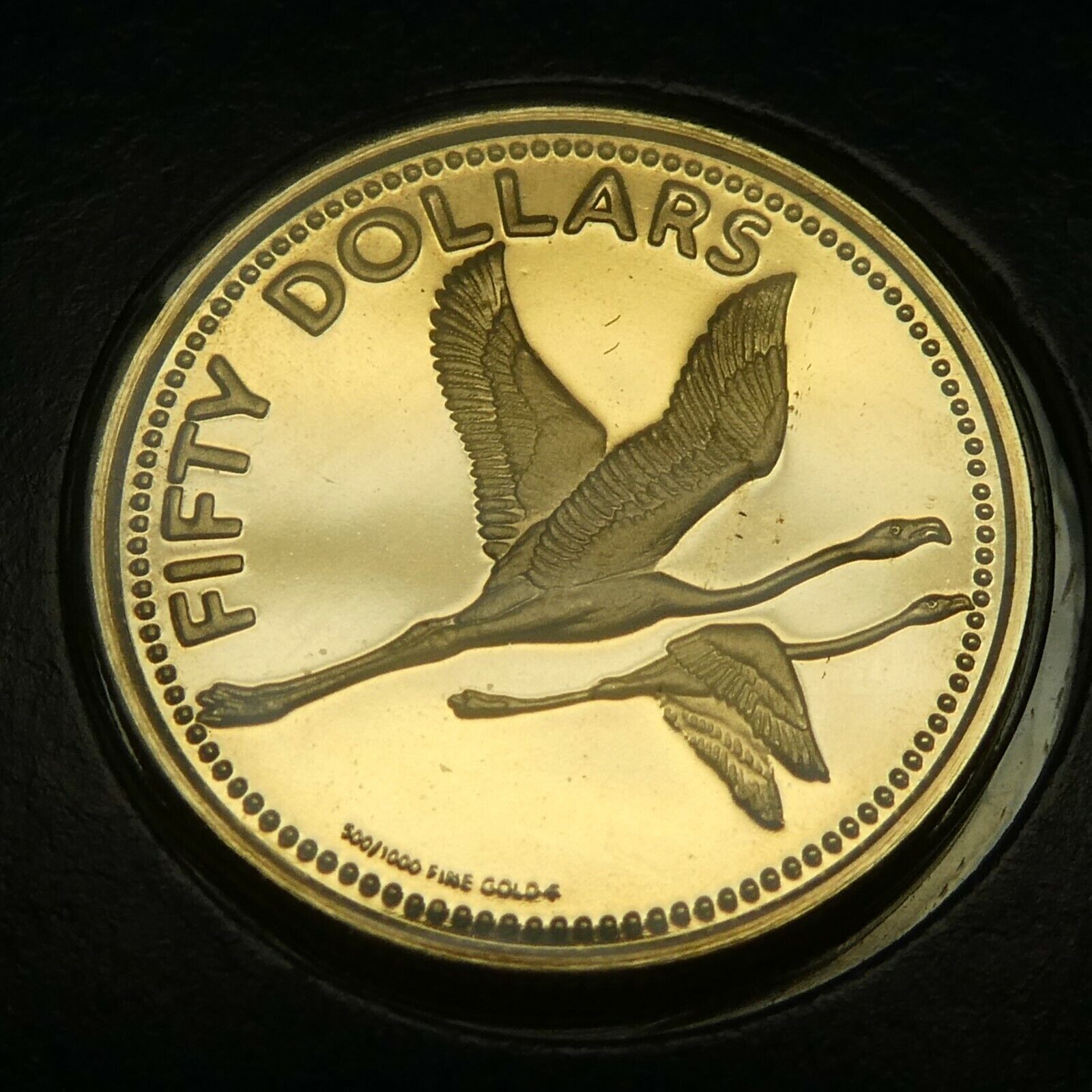-40%
BAHAMAS ISLAND COIN MONEY RARE MINT 1970 1972 1973 1974 1976 1978 1 5 10 50 CENT
$ 58.08
- Description
- Size Guide
Description
COMMONWEALTH BAHAMASCOIN LOT
GREETINGS, FEEL FREE
TO
"SHOP NAKED."
©
We deal in items we believe others will enjoy and want to purchase.
We are not experts.
We welcome any comments, questions, or concerns.
WE ARE TARGETING A GLOBAL MARKET PLACE.
Thanks in advance for your patronage.
Please Be sure to add WDG to your
favorites list
!
NOW FOR YOUR VIEWING PLEASURE…
QUINTESSENTIAL COLLECTION
COMMONWEALTH OF THE BAHAMAS
COINAGE
(15) FIFTEEN COINS
1974
FM
50 CENTS
KM# 64
12K MINTAGE
ULTRA RARE
1978
FM
10 CENTS
KM#61
CAMEO MATTE FINISH
6000 ULTRA LOW MINTAGE
DEPICTS BONEFISH
QUEEN ELIZABETH II
ENGRAVER: ARNOLD MACHIN
(2) 1973
FM
KM#61
35K
LOW MINTAGE
CAMEO MATTE
1978
FM
FIVE CENT
PINEAPPLE
KM#60
12K
CAMEO MATTE FINISH
LOW MINTAGE
1973
KM#17
35K
CAMEO MATTE FINISH
1973
KM#17
21K
PROOF FINISH
(2) 1970
FM
FIVE CENTS
23K
MATTE FINISH
KM#3
1978
ONE CENT
KM#59
CAMEO MATTE
1976
FM
CENT
KM#59
BRASS
1975
FM
CENT
KM#59
29K
(2) 1973
FM
CENT
KM#16
BRASS
ENGRAVER: ARNOLD MACHIN
STARFISH
CAMEO MATTE
35K
1972
FM
CENT
CAMEO MATTE FINISH
NICE TONING
KM#16
35K
ALL COINS ARE MINT
STATE
-----------------------
FYI
The Bahamas, officially the Commonwealth of the Bahamas, is an island country consisting of more than 700 islands, cays, and islets in the Atlantic Ocean; north of Cuba and Hispaniola (the Dominican Republic and Haiti); northwest of the Turks and Caicos Islands; southeast of the U.S. state of Florida and east of the Florida Keys. Its capital is Nassau on the island of New Providence. The designation of "Bahamas" can refer to either the country or the larger island chain that it shares with the Turks and Caicos Islands. As stated in the mandate/manifesto of the Royal Bahamas Defence Force, the Bahamas territory encompasses 470,000 km2 (180,000 sq mi) of ocean space.
Originally inhabited by the Lucayan, a branch of the Arawakan-speaking Taino people, the Bahamas were the site of Columbus' first landfall in the New World in 1492. Although the Spanish never colonized the Bahamas, they shipped the native Lucayans to slavery in Hispaniola. The islands were mostly deserted from 1513 until 1648, when English colonists from Bermuda settled on the island of Eleuthera.
The Bahamas became a British Crown colony in 1718, when the British clamped down on piracy. After the American War of Independence, thousands of American Loyalists, taking their enslaved Africans, moved to the Bahamas, where the Americans set up a plantation economy. After Britain abolished the international slave trade in 1807, the Royal Navy resettled many free Africans liberated from illegal slave ships in the Bahamas during the 19th century. Hundreds of American slaves and Black Seminoles escaped to the islands from Florida, and nearly 500 were freed from American merchant ships in the domestic trade. Slavery in the Bahamas was abolished in 1834. Today the descendants of slaves and free Africans form the majority of the population; issues related to the slavery years are part of society. The Bahamas became an independent Commonwealth realm in 1973, retaining Queen Elizabeth II as its monarch.
In terms of gross domestic product per capita, the Bahamas is one of the richest countries in the Americas (following the United States and Canada).
Etymology of name
The name Bahamas is derived from the Spanish baja mar ("shallow water or sea" or "low tide"). In English, the Bahamas is one of only two countries whose official name begins with the word "the", along with The Gambia.
History
Taino people moved into the uninhabited southern Bahamas from Hispaniola and Cuba around the 11th century AD, having migrated there from South America. They came to be known as the Lucayan. An estimated 30,000 Lucayan inhabited the Bahamas at the time of Christopher Columbus' arrival in 1492. Columbus' first landfall in the New World was on an island named San Salvador (known to the Lucayan as Guanahani), which some researchers believe to be present-day San Salvador Island (also known as Watling's Island), situated in the southeastern Bahamas.
An alternative theory holds that Columbus landed to the southeast on Samana Cay, according to calculations made in 1986 by National Geographic writer and editor Joseph Judge, based on Columbus' log. Evidence in support of this remains inconclusive. On the landfall island, Columbus made first contact with the Lucayans and exchanged goods with them.
The Spanish forced much of the Lucayan population to Hispaniola for use as forced labour; together with suffering from exposure to diseases to which they had no immunity, they suffered high fatalities. The population of the Bahamas was decimated. The smallpox that ravaged the Taino Indians after Columbus's arrival wiped out half of the population in what is now the Bahamas.
Historians had long believed that Europeans generally did not begin to colonize the islands until the mid-17th century. However, recent research suggests that there may have been attempts to settle the islands by groups from Spain, France, and Britain, as well as by other Amerindians. In 1648, the Eleutherian Adventurers, led by William Sayle, migrated from Bermuda. These English Puritans established the first permanent European settlement on an island which they named Eleuthera—the name derives from the Greek word for freedom. They later settled New Providence, naming it Sayle's Island after one of their leaders. To survive, the settlers salvaged goods from wrecks.
In 1670 King Charles II granted the islands to the Lords Proprietors of the Carolinas, who rented the islands from the king with rights of trading, tax, appointing governors, and administering the country. In 1684 Spanish corsair Juan de Alcon raided the capital, Charles Town (later renamed Nassau). In 1703 a joint Franco-Spanish expedition briefly occupied the Bahamian capital during the War of the Spanish Succession.
National flag
The colours embodied in the design of the Bahamian flag symbolise the image and aspirations of the people of The Bahamas; the design reflects aspects of the natural environment (sun, sand, and sea) and the economic and social development. The flag is a black equilateral triangle against the mast, superimposed on a horizontal background made up of two colours on three equal stripes of aquamarine, gold and aquamarine.
The symbolism of the flag is as follows: Black, a strong colour, represents the vigour and force of a united people, the triangle pointing towards the body of the flag represents the enterprise and determination of The Bahamian people to develop and possess the rich resources of sun and sea symbolized by gold and aquamarine respectively. In reference to the representation of the people with the colour black, some white Bahamians have joked that they are represented in the thread which "holds it all together."
There are rules on how to use the flag for certain events. For a funeral the national flag should be draped over the coffin covering the top completely but not covering the bearers. The black triangle on the flag should be placed over the head of the deceased in the coffin. The flag will remain on the coffin throughout the whole service and removed right before lowered into the grave. Upon removal of the flag it should be folded with dignity and put away. The black triangle should never be displayed pointing upwards or from the viewer's right. This would be a sign of distress.
Coat of arms
The coat of arms is like a theme statement that describes the Bahamian people. The coat of arms of the Bahamas contains a shield with the national symbols as its focal point. The shield is supported by a marlin and a flamingo, which are the national animals of the Bahamas. The flamingo is located on the land, and the marlin on the sea, indicating the geography of the islands.
On top of the shield is a conch shell, which represents the varied marine life of the island chain. The conch shell rests on a helmet. Below this is the actual shield, the main symbol of which is a ship representing the Santa María of Christopher Columbus, shown sailing beneath the sun. Along the bottom, below the shield appears a banner upon which is scripted the national motto: "Forward, Upward, Onward Together."
In the less developed outer islands, handicrafts include basketry made from palm fronds. This material, commonly called "straw", is plaited into hats and bags that are popular tourist items. Another use is for so-called "Voodoo dolls," even though such dolls are the result of the American imagination and not based on historic fact.
A form of folk magic (obeah) is practiced by some Bahamians but, mostly the Haitian-Bahamian community, mainly in the Family Islands (out-islands) of The Bahamas. The practice of obeah is, however, illegal in the Bahamas and punishable by law.
Junkanoo is a traditional Bahamian street parade of music, dance, and art held in Nassau (and a few other settlements) every Boxing Day, New Year's Day. Junkanoo is also used to celebrate other holidays and events such as Emancipation Day.
Regattas are important social events in many family island settlements. They usually feature one or more days of sailing by old-fashioned work boats, as well as an onshore festival.
There are many dishes that are part of Bahamian cuisine and some settlements have festivals associated with the traditional crop or food of that area, such as the "Pineapple Fest" in Gregory Town, Eleuthera or the "Crab Fest" on Andros. Other significant traditions include story telling.
Bahamians have created a rich literature of poetry, short stories, plays, and short fictional works. Common themes in these works are (1) an awareness of change, (2) a striving for sophistication, (3) a search for identity, (4) nostalgia for the old ways, and (5) an appreciation of beauty. Some contributing writers are Susan Wallace, Percival Miller, Robert Johnson, Raymond Brown, O.M. Smith, William Johnson, Eddie Minnis, Winston Saunders, and many others.
Bahamas culture is rich with beliefs, traditions, folklore and legend. The most well-known folklore and legends in Bahamas includes Lusca in Andros Bahamas, Pretty Molly on Exuma Bahamas, The Chickcharnies of Andro Bahamas, and the Lost City of Atlantis on Bimini Bahamas.
(THIS PICTURE FOR DISPLAY ONLY)
---------------------------
Thanks for choosing this auction. You may email for alternate payment arrangements. We combine shipping. Please pay promptly after the auction. The item will be shipped upon receipt of funds. WE ARE GOING GREEN, SO WE DO SOMETIMES USE CLEAN RECYCLED MATERIALS TO SHIP.
Please leave feedback when you have received the item and are satisfied. Please respond when you have received the item.
*****
5*'s
*****
If you were pleased with this transaction, please respond with all 5 stars! If you are not pleased, let us know via e-mail. Our goal is for 5-star service. We want you to be a satisfied, return customer.
Please express any concerns or questions. More pictures are available upon request. The winning bid will incur the cost of S/H INSURED FEDEX OR USPS. See rate calculator or email FOR ESTIMATE. International Bidders are Welcome but be mindful if your country is excluded from safe shipping.
Thanks for perusing
THIS
and
ALL
our auctions.
Please Check out our
other items
!
WE like the curious and odd.
BUY, BYE!!
i
Track Page Views With
Auctiva's FREE Counter










